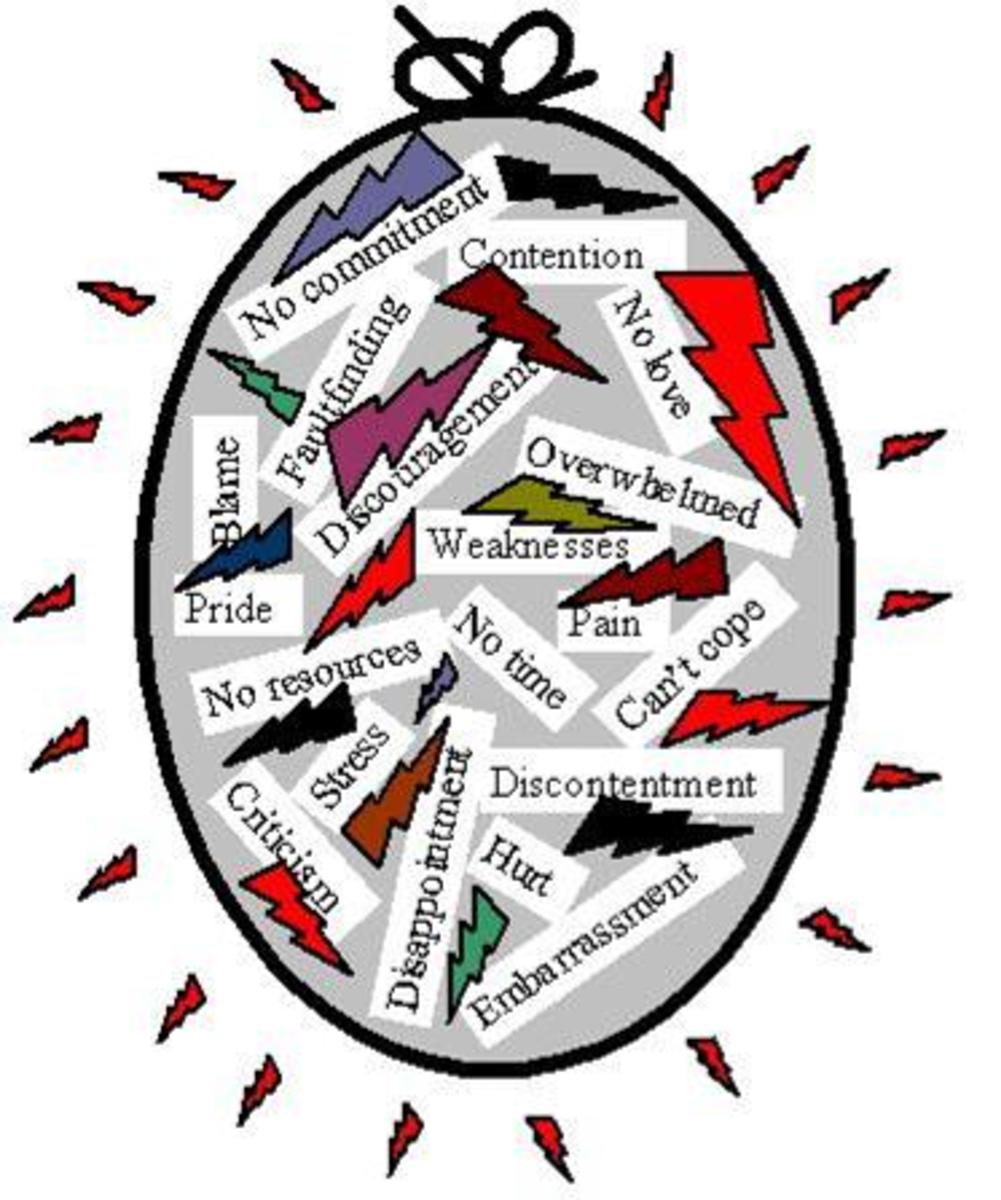How to Deal with Anger Effectively

How to Deal with Anger Effectively
Anger is a natural emotion that everyone experiences but can also be a source of physical and emotional pain for others on the receiving end. The key is to learn how to express this powerful emotion without causing harm to others or yourself because once that door has been opened, it can be extremely difficult to close. I will take you into the mechanics of anger and how it can be used as a potent tool to obtain your wants and needs that benefit everyone involved.

Express Anger Appropriately
As a counselor, anger has been an issue that many people have difficulty controlling and have little education in regards to its effects on self and others. This emotion has been called a secondary emotion by some researchers which suggests anger is a result of some other emotion we experience but cannot verbalize or express appropriately. My philosophy is fairly similar but I believe anger can be used as a defense mechanism to protect us or loved ones from harm as well. It can be an avenue to express extreme dislike for an event or person and when channeled appropriately it can be a great negotiating tool. Notice I said negotiating tool and not a manipulating tool. There is a difference!
Before we can delve into using this emotion to our advantage in a positive way, we must look into the mechanisms that cause us to become angry. Think about a recent time you felt angry about a situation. How did you respond? There are many ways we can respond to anger and I’ve found that people view anger as a negative emotion and believe that if they express it, they are bad people. Nothing could be further from the truth.

The Cheating Spouse and Abuse
Let’s take a situation where a husband cheats on his wife and his wife actually catches him in bed with another woman. The wife has every right to be angry with her spouse and we could even justify her physical violence towards him such as a slap on the face or maybe a closed handed punch to the nose. If we analyze what she was probably feeling then we may come up with disappointment, sadness, shock, and betrayal. These underlying feelings can result in anger if the wife has no knowledge or means of expressing how she feels towards her husband. Anger would certainly not be wrong to express in this event but probably a more effective and healthy way for her to cope would be to express her anger towards the husband and explain that she’s angry because she feels hurt, disappointed and betrayed by her supposed soul mate.
Let’s look at a more chronic issue with anger since the last example was more of a situational event. A husband has been married to the same wife for several years and over that time he has become increasingly controlling and has even physically abused his wife on several occasions because she failed to live up to his expectations. From the outside, the husband seems to have control issues and uses physical force to take what he wants. But, as we look closer we see that his father controlled his mother in the same way to take what he wanted. We can also see the husband feels let down or disappointed when his expectations aren’t met. Since he never verbalizes his expectations to his wife and does not know how to express this disappointment, violence seems to make her realize she did something wrong. If we look even further we see the husbands expectations are very unrealistic of his wife and thus a cycle of disappointment, anger, physical violence is perpetuated without either wife not husband realizing what the true issues are. Let’s say one of the husband’s expectations is that the wife will have dinner ready for her husband every day by 5pm. Well, maybe the wife works a full time job and takes care of the house, laundry and kids. In this chronic cycle, the lack of meeting expectations is the source of anger.


Our Thoughts Control Our Actions
I had a client some years ago that was physically violent towards everyone around him including his own dog! One day the dog finally had a chance to flee and left him, which was this client’s only source of companionship he had left. As we started reviewing his thought patterns, beliefs and values he discovered that not only was his father the same way but he started to empathize with his victims because he knew what it felt like to be physically abused. This was not enough to break the cycle right away but then he also discovered that he set unusually high expectations on people around him because he felt inadequate about his own abilities. This is when change really started to occur and he was able to change those expectations and build up self confidence in his own abilities. This client completed counseling headed down the path towards expressing his true feelings in an assertive way that actually helped his relationships.
Leave the situation and return later
|
|---|
If leaving is not an option, then remove yourself
|
Return with an open mind and prepared to compromise
|
track thoughts and feelings on paper, share if possible
|
Seek the real reason for the anger outbursts
|
Assertively respond- address the issue and be respectful
|
Discipline and Anger
There are many situations and events when anger can be expressed in a powerful way to convey an important message to someone or a group of people. Take for instance a child that runs out in the middle of the street after you have politely yet firmly informed her not to do so. Yelling at children will produce the opposite effect that you desire more often than not but sternly telling the child that you are disappointed with their behavior and that discipline is in order will probably have longer lasting positive results.
If you're reading this article and express anger by physical violence or emotional abuse, then read some tips below for ways to change. Change starts with you, not your spouse, not the system and not anyone else.
- Seek some professional help immediately. Your family and friends do not deserve your abuse and you can get what you want without intimidation, violence and abuse.
- When a situation arises that you feel will provoke you to violence, get out of the situation.
- If you are unable to retreat then remove yourself from the situation until you are able to talk about it without violence or abuse.
- Write down what your feeling and your thoughts about the situation and share them if possible.
If you want people to respond appropriately to your requests or rise to your expectations, then you must do it assertively. This means explaining what your need or want is and doing it in a way that is respectful, direct and empathetic towards the feelings of others. Telling your wife she should have dinner for you every night by 5pm is not assertive, but dominant. Compromising and stating that you would appreciate it if she could have dinner ready for you when you return home two nights per week is a start. It would be a good idea for you to volunteer to take a night and make dinner too so that you experience what she does. After she lavishes you with kisses and hugs, then you can move forward together.
Anger is a common human emotion that can lead to abuse and violence when left unchecked. By recognizing thoughts and emotions behind the anger we can begin to understand how to effectively use it to express and communicate our needs and wants. Abuse and violence is never a useful means to have our needs and wants met and will create more problems in the long run. If violence and/or abuse rears its ugly head, professional help should be sought.
What I want you to take away from this article is that first of all anger is not bad. Second, you must move past the anger to really see what is going on inside a person. Third, after those feelings and emotions have been identified, they need to be brought to the surface and assertively expressed for a mutually beneficial resolution. Most of all, I want you to know that anger can be used for good!
For more information about triggers to anger, check out my article about stress.








